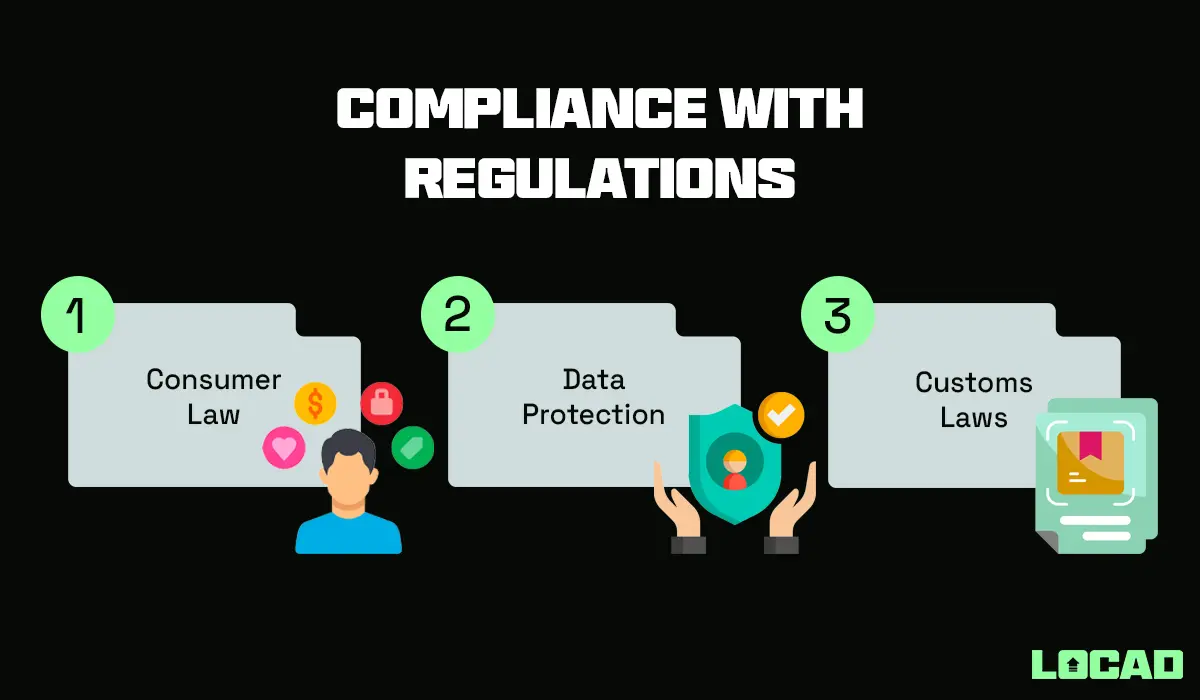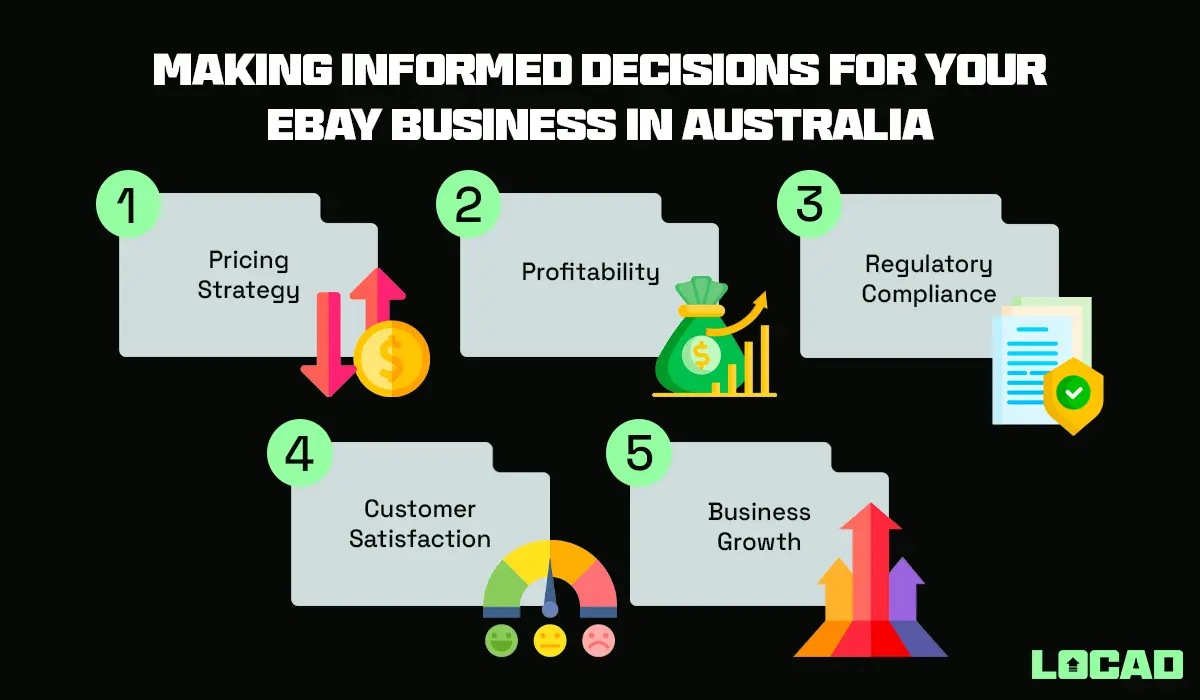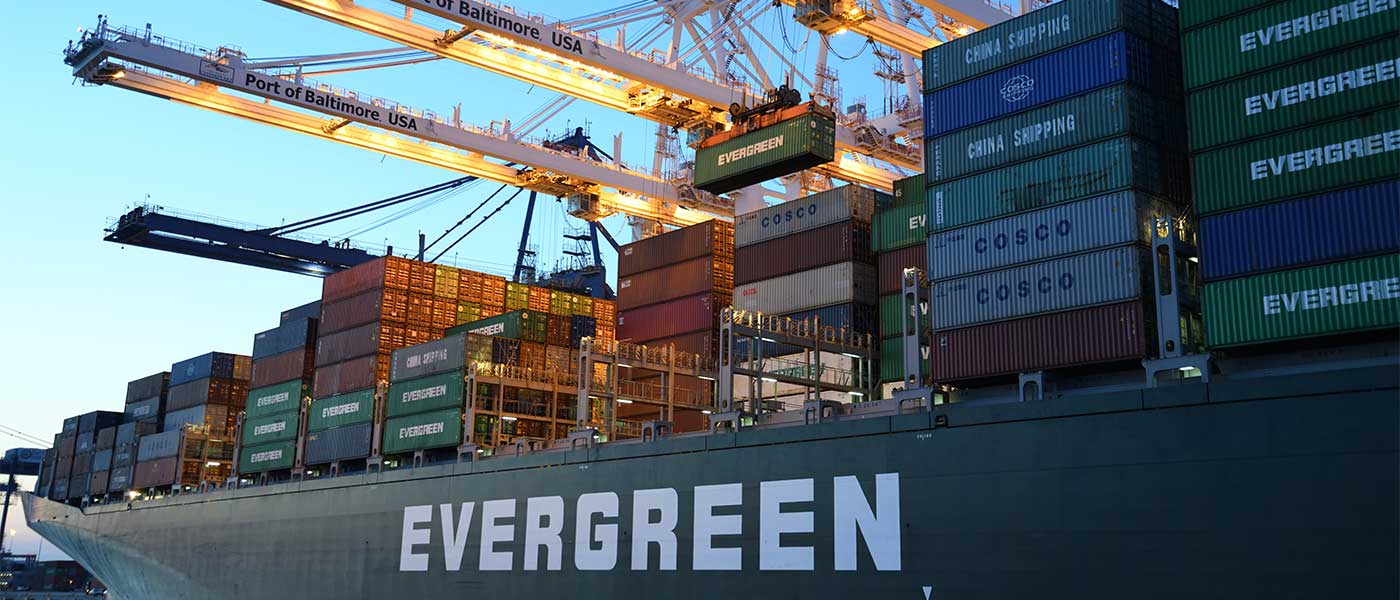Welcome, online sellers! Ever felt like you’re navigating a maze when dealing with eBay taxes and import charges in Australia? You’re not alone. It’s a complex world out there, but don’t worry – we’ve got your back.
In this blog post, we’ll unravel the intricacies of eBay taxes and import charges down under. We’ll shed light on how they impact your pricing strategy and overall profitability. We’ll also guide you through the regulations you need to be aware of and share some savvy tips to help you make informed decisions.
So, whether you’re an established eBay seller or just starting out, this blog is your compass to navigate the financial landscape of online selling in Australia. Let’s dive in!
Understanding eBay Taxes in Australia
Stepping into the world of eBay selling can feel like stepping into a whole new universe, especially when it comes to taxes. But don’t fret, we’re here to make it simple.
Goods and Services Tax (GST)
In the realm of online selling in Australia, Goods and Services Tax (GST) is a pivotal concept. GST is a value-added tax of 10% on most goods and services sales, including those made online. For eBay sellers, understanding how GST applies to their sales is crucial.
If your business’s annual turnover exceeds a certain threshold (at the time of writing, it’s $75,000 AUD), you are required to register for GST. This registration threshold includes your eBay sales, so it’s essential to keep a keen eye on your revenue.
Once registered, you must calculate and remit GST on your eBay sales. This means factoring in the 10% tax on the total price of items sold, including shipping costs. Ensuring compliance with GST regulations not only keeps you on the right side of the law but also contributes to the seamless operation of your online store.
Import Duties and Taxes
For Australian eBay sellers engaging in international trade, import duties and taxes are significant considerations. Import duties, often known as customs duties, are tariffs imposed by governments on imported goods. These charges vary based on the type and value of the items being sold and the country of import. It’s crucial to understand the implications of these charges, both for the seller and the buyer.
Typically, the responsibility for paying import duties and taxes falls upon the buyer. However, sellers need to be transparent about these potential costs, ensuring that buyers are aware of the additional charges they might incur upon delivery.
Being upfront about import duties and taxes not only fosters trust but also prevents misunderstandings that could lead to disputes and negative feedback.
A Complete Cross-border E-commerce Guide to Australia: Localisation, regulations, and logistics cost
Hey there, e-commerce explorer! Looking to dive into the Australian e-commerce market? You’re in the right place. We’ve crafted this…
eBay Fees and Taxes
eBay fees are an integral part of an online seller’s financial landscape. These fees, which include insertion fees, final value fees, and optional listing upgrade fees, impact your profit margins significantly. It’s essential to understand how these fees are structured and, more importantly if they are subject to GST.
In most cases, eBay fees are taxable, which means you need to account for the GST component when calculating your overall tax liability. Accurate record-keeping of these fees is paramount. Maintaining detailed records not only ensures you fulfil your tax obligations but also helps you assess the profitability of your eBay venture accurately.
Navigating Import Charges Efficiently in Australia
Alright, we’ve covered eBay taxes and import charges. Now, let’s navigate through the sea of regulations that come with selling on eBay in Australia.
1. Proper Documentation
When it comes to international sales, especially in the digital age, proper documentation is your best friend. Accurate and complete documentation is vital for customs clearance and, consequently, the smooth transit of your items across borders. A missing or incorrect document can lead to delays, additional charges, and, potentially, dissatisfied customers.
To ensure a hassle-free shipping process, create a checklist of essential documents required for international shipments. This checklist should include:
- Invoices
- Packing lists and
- Any permits or licenses specific to the items being shipped.
Keeping these documents organised and readily accessible can save you significant time and effort, ensuring your items reach their destination without unnecessary delays.
2. Tariff Classification
Correct tariff classification of goods is paramount when it comes to import duties. Tariff classification determines the specific rate of duty applicable to your products.
Incorrect classification can result in overpaying or underpaying duties, both of which have financial implications for your business.
To determine the accurate classification of your products, leverage available resources or tools. Government websites often provide tariff databases and online tools that can assist you in correctly classifying your items.
Investing the time to classify your products accurately can lead to substantial cost savings, ensuring you pay only the necessary import duties and taxes.
3. Strategic Shipping and Fulfillment
Strategic shipping and fulfillment practices can significantly impact your import charges. Choosing the right shipping methods and fulfillment strategies in Australia can help you minimise these charges, ensuring your items reach your international customers cost-effectively.
When selecting shipping methods, consider the size, weight, and value of your items. Different carriers offer various services tailored to specific types of shipments. For instance, express shipping might be ideal for smaller, high-value items, while standard international shipping might be more economical for larger, lower-value products.
Additionally, consider warehousing your products locally in the target country. Local fulfillment centres in Australia can store your inventory, allowing for quicker and more cost-effective shipping to your international customers. By minimising the distance your items need to travel, you can reduce shipping costs and, consequently, import charges.
From Storage to Delivery: Navigating E-commerce Fulfillment in Australia
As an Australian e-commerce business owner, brand manager, or operations manager, you’ve embarked on an exciting journey to conquer the…
4. Currency Exchange Considerations
Currency exchange rates play a crucial role in international transactions. Fluctuations in exchange rates can impact the cost of your items, as well as the import duties and taxes incurred by your buyers.
As a seller, it’s essential to consider these currency fluctuations and their potential impact on your pricing strategy.
One approach to mitigate the risks associated with currency fluctuations is to lock in favourable exchange rates. Currency exchange tools or services can help you secure a stable rate, providing predictability in your financial transactions.
By hedging against adverse currency movements, you can maintain stable pricing for your international customers, ensuring they aren’t subject to sudden increases in import charges due to currency fluctuations.
5. Compliance with Regulations
Staying compliant with import regulations is paramount for any eBay seller engaged in international trade. Regulations are subject to change, making it crucial for sellers to stay informed about the latest updates. Non-compliance can lead to fines, delays, and potential legal issues, all of which can harm your business’s reputation and profitability.
Regularly monitor government websites or regulatory authorities for updates on import regulations and tax laws. Being proactive and adapting your practices in line with the latest regulations can save you from potential headaches down the road.
Lastly, it’s important to know that as an eBay seller, you’re required to comply with all relevant laws and regulations, both Australian and international. This includes consumer law, data protection regulations, and customs laws.
Here are a few key points to keep in mind:

- Consumer Law: Australian Consumer Law protects consumers and ensures fair trading in Australia. As a seller, you must ensure that your products meet safety standards and that your descriptions are accurate.
- Data Protection: You must comply with data protection laws when handling customer information. This includes securely storing customer data and not sharing it without consent.
- Customs Laws: If you’re importing goods to sell, you’ll need to comply with Australian customs laws. This includes accurately declaring the value of goods and paying any applicable duties and taxes.
Remember, these are just the basics. Depending on what you’re selling, there may be additional regulations to consider. It’s always a good idea to seek legal advice if you’re unsure you’re in full compliance with the law.
In our next section, we’ll share some tips on how to make informed decisions about your eBay business in Australia. Keep reading!
Australia’s E-commerce Laws and Regulations
At present, almost all countries have e-commerce laws firmly in place to protect both online buyers and e-commerce companies. Some countries…
Making Informed Decisions
Now that we’ve covered the basics of eBay taxes, import charges, and how to navigate them, let’s talk about how you can use this knowledge to make informed decisions for your eBay business in Australia.

- Pricing Strategy: Understanding eBay taxes and import charges can help you set competitive prices. Remember to factor in these costs when pricing your items.
- Profitability: By accurately calculating your potential taxes and import charges, you can better predict your profits and ensure your business remains profitable.
- Regulatory Compliance: Staying on top of regulations can save you from potential legal issues down the line. Always ensure your business is compliant with Australian and international laws.
- Customer Satisfaction: Transparency about costs can lead to better customer satisfaction. Be upfront about any additional charges that your customers may have to pay.
- Business Growth: With a solid understanding of the financial landscape, you can make strategic decisions that drive business growth. Whether it’s expanding into new markets or introducing new products, knowledge is power!
Remember, running a successful eBay business in Australia is not just about selling products. It’s about understanding the landscape, making informed decisions, and constantly learning and adapting. So keep exploring, keep learning, and keep growing!
Locad E-commerce Academy | Build your E-commerce Business Empire
E-commerce Academy E-commerce Academy Become an e-commerce expert with our 40-course academy. Everything you need to know on how to setup a…
Wrapping Up
In conclusion, understanding eBay taxes and import charges in Australia is pivotal for the success of your online business. Make sure you:

- Keep Good Records: Maintain accurate records of all your transactions, including sales, expenses, and import charges. This will make it easier when it’s time to file your taxes.
- Consider Professional Help: If taxes and import charges seem overwhelming, consider hiring a tax professional or accountant who specialises in e-commerce.
- Stay Informed: Tax laws and regulations can change frequently. Stay up-to-date with the latest information from the ATO.
By comprehending the nuances of GST, import duties, eBay fees, and efficient practices, you can navigate the complexities of international trade with confidence.
Remember, understanding eBay taxes and import charges in Australia is key to making informed decisions for your online business. And that’s where Locad comes in. As a global e-commerce fulfillment network, Locad can help you streamline your online business operations.
With Locad, you can focus on what you do best – selling your products and growing your business. And let us take care of the complexities of fulfillment, international market expansion and other logistics operations, so you can sell with confidence.
So why wait? Connect with Locad today and take your eBay business to the next level! Happy selling!















